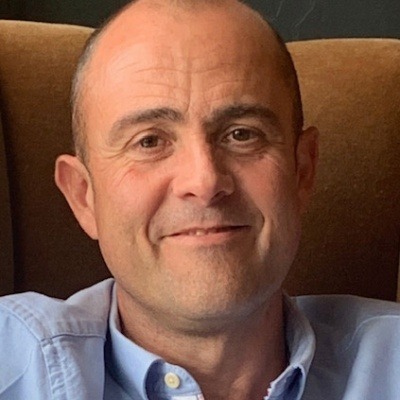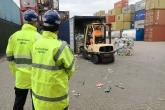Circular economy needs enforcement not just ambition
Paul Empson, General Manager at Bakers Basco, argues that practical enforcement measures are essential to prevent asset misuse and theft in circular economy systems.
 I certainly welcome the bold tone of the President of FEAD, Claudia Mensi's recent call for a transformative Circular Economy Act (scheduled for 2026). But as someone who works daily in the thick of supply chain reuse, recovery, and protection, I want to move the conversation from theory to reality. Because at ground level, where plastic gets lost, misused or stolen, circularity isn't a lofty ideal. It's a practical necessity.
I certainly welcome the bold tone of the President of FEAD, Claudia Mensi's recent call for a transformative Circular Economy Act (scheduled for 2026). But as someone who works daily in the thick of supply chain reuse, recovery, and protection, I want to move the conversation from theory to reality. Because at ground level, where plastic gets lost, misused or stolen, circularity isn't a lofty ideal. It's a practical necessity.
At Bakers Basco, we manage a pool of reusable plastic bread baskets and dollies shared by major UK bakeries. Our equipment is designed to circulate and to move goods efficiently and then returned to be used again. That's the very definition of a functioning circular economy. And when it works, the benefits are clear: reduced plastic waste, fewer emissions, less reliance on raw materials and better resource efficiency.
But here's the challenge. Our products - like many assets designed for circular use - often don't come back. They're misused, dumped, illegally recycled or stolen. We've even seen them popping up at festivals and markets, repurposed for anything from storage to camping gear. This isn't just an inconvenience. It's a systemic break in the circular chain. And it costs us millions of pounds each year, not to mention the environmental toll of replacing what should never have been lost in the first place.
That's why I wholeheartedly support FEAD's first pillar: boosting demand for recycled and reused materials. But we also need enforcement. Legislation must not only incentivise circular practices, it must also actively deter misuse. For a product to circulate, everyone in the chain needs to play their part. That includes holding those who remove or misuse reusable assets accountable.
The second point raised — building a truly Circular Single Market — is critical. Right now, we have fragmented regulations across regions. That makes it harder to track, retrieve and lawfully repatriate equipment that has strayed from its intended use. Harmonised rules, especially around waste shipment and product identification, could make recovery operations like ours significantly more effective.
We've invested in smart tracking, GPS-enabled equipment and equipment markers to identify our products, even after they've been melted down. We work with Crimestoppers, law enforcement, government bodies and local councils to educate and enforce. But we can't do it alone. What we need now is policy that recognises and supports this frontline work. Because while we talk about AI-driven recycling and circular innovation, the reality is: none of it works if the items we design to be reused never return.
The Circular Economy Act is a huge opportunity but only if it connects the macro with the micro. Yes, we need ambitious targets like 25 per cent circular material use by 2030. But we also need practical, enforceable measures to ensure the circular assets already out there stay in circulation. This means making reusability as visible and valued as recyclability.
In the end, circularity isn't just about end-of-life recovery. It's about keeping materials in play. In our case, that means fewer baskets sent to landfill or chipped prematurely, and more staying in service for years as originally intended.
We don't need more declarations. We need clarity, coordination and accountability. That's what will unlock the full value of the circular economy - for manufacturers, consumers, the environment and future generations.
Let's make the Circular Economy Act more than a headline. Let's make it a system that works - not just in theory, but in practice. We're ready to do our part. Is Europe? I suppose we'll have to wait until 2026 to find out.
Paul Empson is General Manager at Bakers Basco, a not-for-profit campaign tackling plastic waste in the baking industry.








